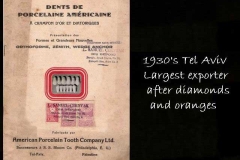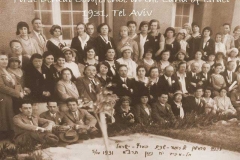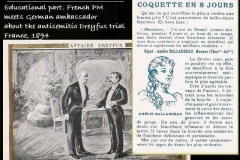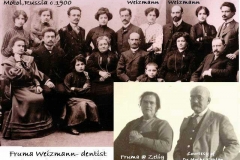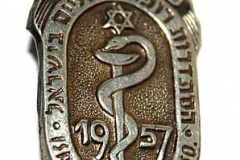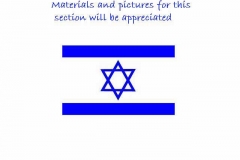 No dentistry/dentist reference or mouth hygiene advice is found in the bible. So one must assume, that the dental health of the early Hebrews was exceptionally good.
No dentistry/dentist reference or mouth hygiene advice is found in the bible. So one must assume, that the dental health of the early Hebrews was exceptionally good.
Tooth healers were all foreign- Egyptians, Greeks or Phoenicians (today’s Lebanon).
The value of a tooth was high and losing a tooth was considered a big deal. A man with a missing tooth could not serve as a High priest in the temple. Slave owner, who caused a tooth loss to his slave – had to set him free.
It was advised by rabbis to avoid extracting teeth, especially the upper canines, as it could damage the eye.
There was a dispute between rabbis about the toothache on Sabbath. Finally it was agreed, that if one had to call for a specialist gentile dentist to perform a complex procedure- then it was considered a life saving procedure and was allowed.
However- if the tooth merely had to be extracted by a common tooth drawer- it was a sin and a desecration of the Sabbath.
The rabbis instructed women not to wear gold jewelry on their teeth on Sabbath outside their homes. The reason for that- in case the gold will fall to the ground, the woman will surely want to pick it up – and that would be considered as work and a desecration of the Sabbath too.
בתנ”ך לא נמצא אזכור לטיפול שיניים או רופאי שיניים. יש להניח שהעברים הקדמונים התברכו בשיניים בריאות. מרפאי השיניים היו כולם זרים- מצרים, יוונים או פיניקים ( לבנונים של ימינו ). ערך השן היה גבוה- אדם עם שן חסרה היה מנוע מלשמש ככהן בבית המקדש. בעל העבד שגרם לעבד לאבדן שן- היה חייב לשחררו לחופשי.
הרבנים המליצו להימנע ככל הניתן מעקירת שיניים ובמיוחד מעקירת הניב העליון עקב חשש מנזק לעין. טיפול שיניים בשבת נחשב לפיקוח נפש והיה מותר אם היה צורך להזמין מומחה זר לטיפול מורכב. אבל אם סתם עקירה על ידי עוקר שיניים פשוט הספיקה לטיפול בכאב- זה כבר נחשב לחילול שבת.
נאסר על הנשים לענוד קישוטי זהב על השיניים בשבת לרחוב. זאת מחשש, שאם קישוט הזהב ייפול ארצה
האישה בוודאי תרצה להרימו ותחלל את השבת.

